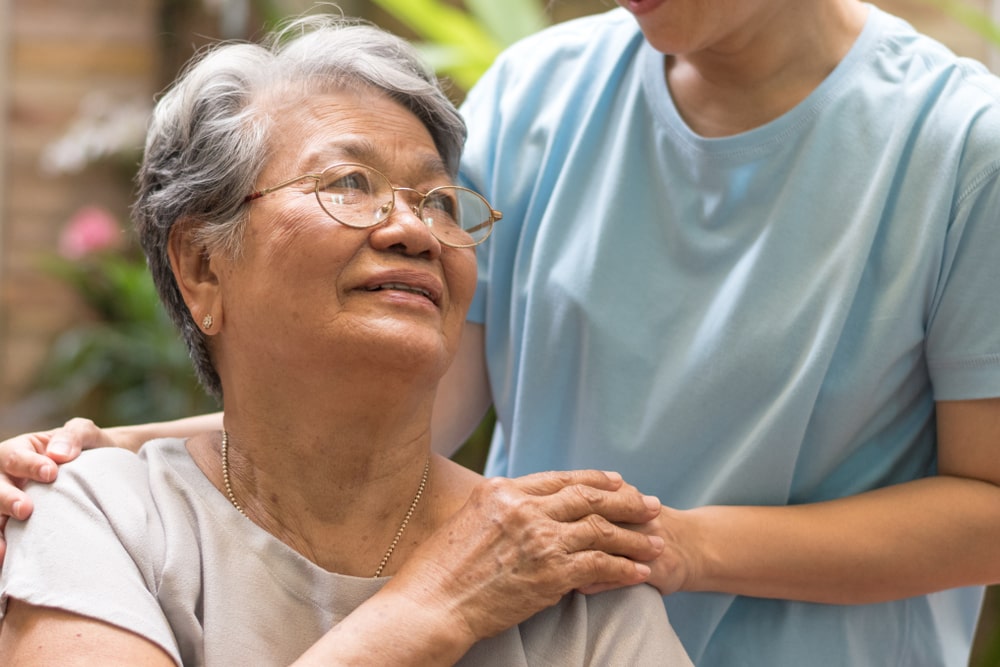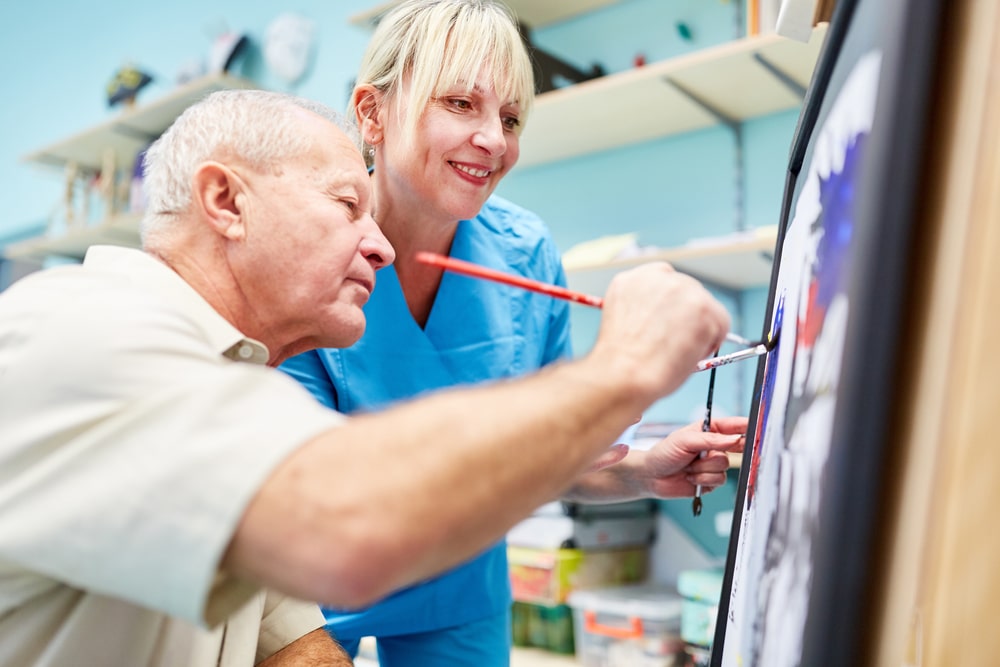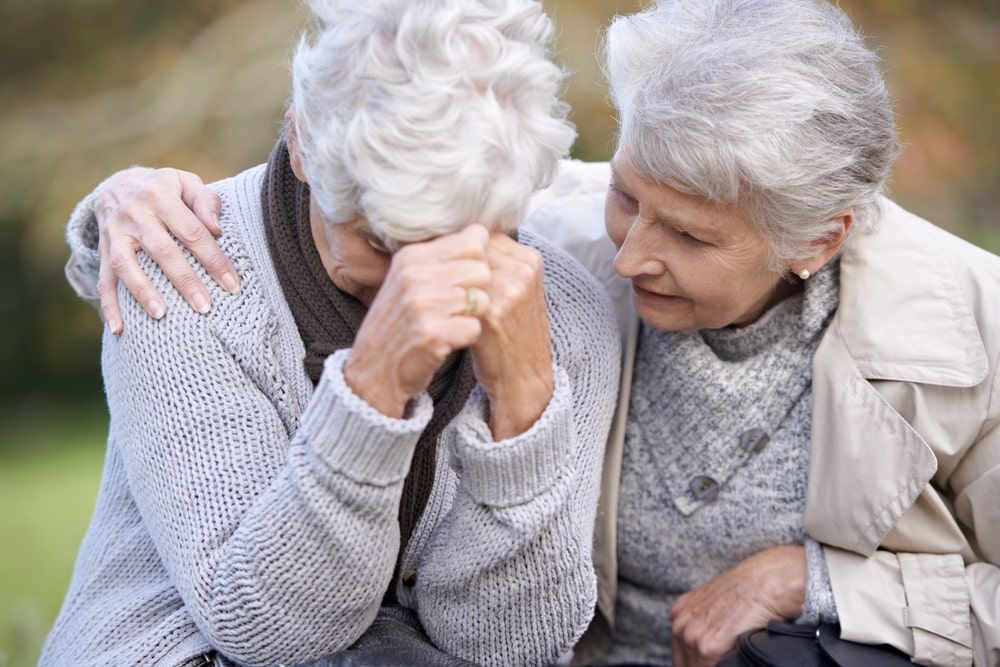If you are caring for a loved one in hospice, you may be so preoccupied with your family member’s condition that you have very little time to process your own needs for self-care. Even if it’s been months, it’s usually not nearly enough time to come to grips with the reality that your loved one is dying. The fact is that you are experiencing prolonged anticipatory grief. And grief is hard! It’s unpredictable and grueling. It’s mentally, physically, and emotionally taxing.

Depending on the nature of your relationship with your loved one, these feelings may persist for quite some time. That’s why self-care is so important. Every person’s grief journey is different, encompassing a range of emotions and an unknown time span, but in the midst of it all, taking care of yourself is important. You may not feel like you have time to take care of yourself right now, but self-care is one of the most beneficial things you do for yourself…and your family.
When you think about self-care, personal fitness may first come to mind, but really, it’s a much broader term. It does mean taking care of yourself physically, but it also encompasses your emotional, spiritual, cognitive, and even social health. So, what can you do to take care of yourself while you’re caring for a loved one in hospice?
1. Don’t be afraid of your feelings.
You feel what you feel. It is what it is, and there is absolutely nothing wrong with the emotions that may be coursing through you. We all feel loss differently, and every loss is different because every person and individual relationship is unique. Try not to stifle or ignore your feelings; don’t stuff everything down. Instead, accept that you feel what you feel and that it’s okay.
2. Give yourself time.
Grief is a journey, not an event. You will need time to come to grips with what it will mean to live without your loved one. While your loved one is in hospice care, you may have fallen into a particular routine, and you may not feel like you have time to grieve your loss as it’s happening. It’s okay to give yourself a little space and to take more breaks. Losing a loved one is hard, and you need time to work through your emotions, so you can be present in the moment with the person you are caring for.
3. Find ways to express your feelings.
It’s important to express your feelings in some way, but what you do is going to depend on your personality. For some, it’s helpful to go out into the backyard and chop wood or go to the batting cages and just whack the ball over and over again. For others, creative expression is helpful. Many times, journaling, creative writing, painting, drawing, arts & crafts, or other types of self-expression help us make sense of the seemingly senseless feelings going on inside. And if you are a person of faith, prayer, meditation, worship, or traditional rituals can help you express your grief.
4. Don’t neglect your health.
Most people feel more tired and less energetic when they are caring for a sick loved one. For this reason, it’s important to get plenty of sleep. If you are having trouble sleeping, try to stay hydrated, limit your caffeine intake in the afternoons, and make sure that your bedroom is dark and relaxing. Additionally, make sure that you are eating healthy foods and taking time to participate in some kind of physical activity on a regular basis.
One thing to watch out for is numbing activities. It may start out as a coping mechanism but beware of allowing numbing activities to distract you from dealing with your emotions. Common numbing activities are: overeating, alcohol or drug abuse, anger outbursts, excessive exercise, binge watching TV or movies, escaping into books to distract yourself, isolating yourself, shopping to feel better, or overworking to stay busy. While these activities may help you cope for a while, they only hit the pause button on your emotions. They won’t help you move toward reconciling to your loss and moving forward in a healthy way.
5. Allow others to walk alongside you.
You don’t have to walk this road alone. In fact, it will be much less stressful if you do accept help from others. You are going through an experience that is changing you in an irreversible way, and that’s not something you should have to process alone. Take your friends along with you on the hard journeys in life. They can’t carry your burdens for you, but they can help carry you along, and they can provide the support you need to move forward and find new life and new meaning.
Self-Care vs. Keeping Busy
It’s important to remember that self-care is not about “keeping busy.” It’s about taking care of yourself as you grieve and process a loss as it’s happening. Nationally respected grief expert Dr. Alan Wolfelt puts it this way: “Remember—self-care fortifies your long and challenging grief journey, a journey which leaves you profoundly affected and deeply changed. To be self-nurturing is to have the courage to pay attention to your needs. Above all, self-nurturing is about self-acceptance. When we recognize that self-care begins with ourselves, we no longer think of those around us as being totally responsible for our well-being. Healthy self-care forces us to mourn in ways that help us heal, and that is nurturing indeed.”
Caring for yourself will contribute to giving you the strength you need to face each new day with its unique challenges. So, take a relaxing bubble bath. Exercise. Talk with friends. Take walks. Stick to a daily schedule. Enjoy a healthy, revitalizing meal. No matter what you decide is best for you, be kind to yourself. It’s okay to have a bad day, and you don’t need to feel guilty when you have a good day. Being kind to yourself will help you reconcile with your loss and find a way to move forward each day, with enough energy to celebrate the successes and mourn the heartbreaks.






